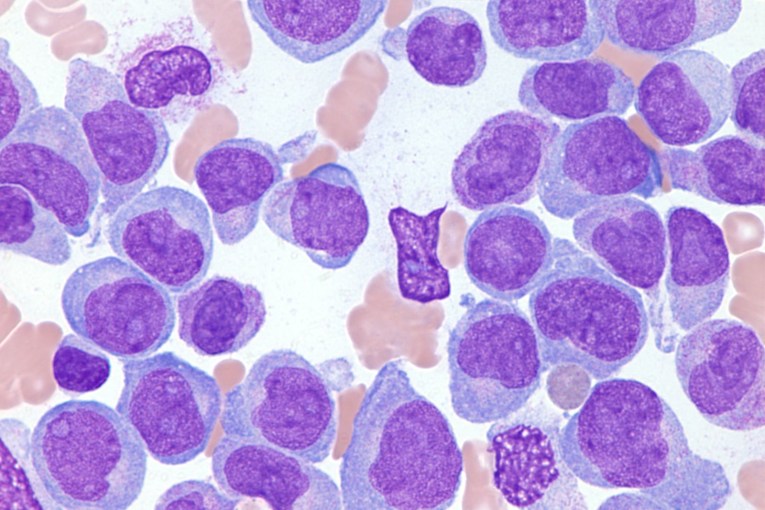The future of meat is fake – grown in a laboratory from animal cells


Fast food companies are offering plant-based burgers, while laboratories develop animal-cell based meat products. Photo: Getty
The meat you eat in the future might come from animal stem cells grown in a laboratory to curb the environmental cost associated with traditional meat and livestock production.
Up to 10 start-up companies in Silicon Valley in the southern San Francisco Bay area are developing “clean meat” – and now Australian entrepreneurs are following suit, looking to produce meat products from plants or animal stem cells for a meat-minimal diet.
The products differ greatly from plant-based mock meat or meat substitutes found on supermarket shelves and in restaurants as surrogates to satisfy our carnivorous cravings. Those products are generally made from soy-based products such as tofu, tempeh, gluten, the root of the konjac plant or dried and shredded mushrooms.
Growing tiny samples of real animal cells in a nutrient bath in a disease-free environment, that’s the approach of companies developing “clean meat”. And they have some prime-cut backers.
Philanthropists, including Microsoft founder Bill Gates and Virgin founder Richard Branson, are funding the development of fake meat products.
Some of the biggest meat producers globally, Tyson and Cargill, are also investing in innovations in plant and cell-based meat products.
One “clean meat” burger, made by Impossible Foods, reportedly cost $400,000 to produce. But the cost of production appears to be falling, with Memphis Meats claiming it can produce one kilogram of laboratory meat for $6000 and now developing products that include ‘Southern Fried Chicken’, ‘Meatball’ and ‘Duck a la Orange’.

The ‘$400,000 burger’ produced by Impossible Foods. Photo: Instagram
“We are developing a way to produce real meat directly from animal cells using far less land, water and energy than conventional meat production,” Memphis Meats says on it’s website.

The meatball produced by Memphis Meat. Photo: Instagram
The prices for fake meat are not yet commercially viable, but with more than 11 per cent of Australians opting not to eat meat, and about 40 per cent working to reduce their meat intake, companies are keen to supply a growing cohort of vegetarians, vegans and ‘Meatless Monday’ converts.
Melbourne chef and vegan restaurant co-owner of Smith and Deli, Shannon Martinez, who produces a range of comfort-food deli options suitable for vegans, told The New Daily that “clean meat” could have a massive impact on meat consumption.
Ms Martinez who, like her co-owner, is not vegan, said many of her customers were also not vegan, but rather meat-eaters like her who are simply trying to reduce consumption.
“My reasoning to cook vegan is to reduce consumption and, from my standpoint, clean meat is pretty amazing,” she said.
“I don’t think it will appeal to many vegans, but it’s a positive step to fewer animals being slaughtered, and the impact of this for the meat- eating population will be massive.
“I think humans are pretty selfish – willing to change as long as it doesn’t change too much and that’s the attraction towards this sort of product.”

Memphis Meat’s Southern fried ‘chicken’. Photo: Instagram
Vegan Australia director Greg McFarlane told The New Daily many “clean meat” products were derived from animal cells and therefore could not be defined as vegan.
He explained companies are developing products by sourcing animal cells from the bovine serum of unborn calves from the mothers after they had been slaughtered.
“The definition of vegan is to avoid suffering to animals, and many of these products still involve the suffering of a mother and calf,” Mr McFarlane said.
The vegan advocate also called “clean meat” a highly processed food with little information available about its nutritional value.
Melbourne-based non-profit Food Frontier is currently working with the food industry and government to accelerate the development of cultured meat-growing in Australia.
The organisation’s chief executive Thomas King said current meat production was a “big problem”, and rising meat consumption was a concern for the environment.
Livestock are responsible for 18 per cent of the greenhouse gases that cause global warming – more than cars, aeroplanes and all other forms of transport put together, according to a UN report.
“Prompting higher consumption of plant-based meals is one effective measure and one that developed countries certainly should already be adopting,” Mr King said in a presentation at the Asia-Pacific Food Forum.
He said these initiatives should be applauded, but scientists were working to create sustainable, nutritious protein that’s personally and culturally satisfying.








